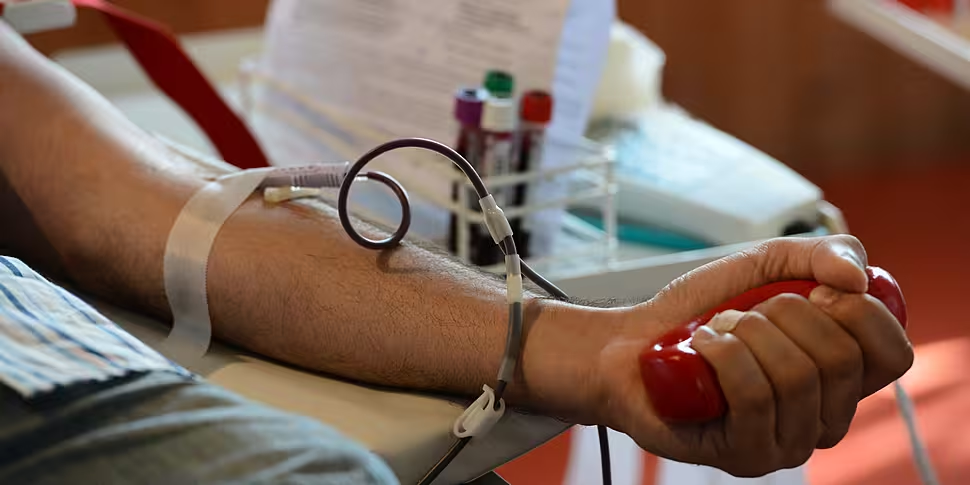With supplies critically low around the country, people across Ireland are being encouraged to donate blood.
Last year saw the highest number of blood donations units requested by hospitals in over a decade, with the "exceptionally high" demand expected to continue in 2025.
On Breakfast Briefing, Irish Blood Transfusion Service (IBTS) spokesperson Paul McKinney said there is less than three days’ supply left in the Rhesus Negative blood groups.
“To be honest, we are low across the board,” he said.
“O positive, which 48% of us are - we normally never have shortages in that - we are at four days in that group.”
 A picture shows blood packs stored in a box in a medical centre. (Photo by GEORGES GOBET/AFP via Getty Images)
A picture shows blood packs stored in a box in a medical centre. (Photo by GEORGES GOBET/AFP via Getty Images)Mr McKinney said blood donation has been affected by “a combination of things”.
“Obviously, Storm Éowyn and Herminia have really caused havoc with our clinics,” he said.
“The snow two weeks ago also caused huge problems - we had to cancel clinics.
“Unfortunately, we had very high no shows and our clinics were operating significantly below the full capacity, around 60% full.
“There's a lot of sickness out there amongst our donor community in general and hospital demand has been extremely high even throughout all of those.
Mr McKinney said IBTS facilities have been affected by power cuts as well.
Younger donors
The service is “constantly looking for new donors”.
“The average age of our donors is now 46 [and] we need desperately to get younger donors in,” Mr McKinney said.
“We desperately need young people to step forward and help us ensure that we have enough blood to keep the hospitals going.
“We need donors of all ethnicities and in particular those of African heritage.”
"Challenging week"
Mr McKinney said despite it being a few weeks past making New Year’s resolutions – giving blood would be a great resolution to “save somebody’s life”.
“This is going to be a very challenging week for us,” he said.
“We have 150 clinics operating over the next four weeks [and] we need those clinics at full capacity.
“If you get a text from us, please make an appointment and please try and show up.
“Otherwise, we are going to have to reduce our supply to the hospitals, which will have an impact on their services, unfortunately.”
 A blood donor's arm after the blood donation. (Photo by Filip Radwanski / SOPA Images/Sipa USA)
A blood donor's arm after the blood donation. (Photo by Filip Radwanski / SOPA Images/Sipa USA)Mr McKinney said the service is at such critical levels that hospitals may have to decide what operations can actually go ahead.
“We operate a traffic system with the hospitals - we're currently at a pre-amber warning to the hospitals, which is to tell them that we our stocks are very low, that we are taking actions to try and correct them,” he said.
“If, however, we go to an Amber Alert, which we're very close to, that means that we would ask the hospitals to implement their own emergency blood management groups, and they would then, unfortunately, have to decide what operations could go ahead.
“Obviously, urgent operations do, but certainly elective surgeries would come under pressure.
"We've never had to in the history of the state go to that level.
“Going to a red which is under two days, would mean that only emergency situations would have to be dealt with.”
Mr McKinney emphasised that bloods are at a “very critical stage”.
A young man donates blood. Image: Alamy Stock Photo









